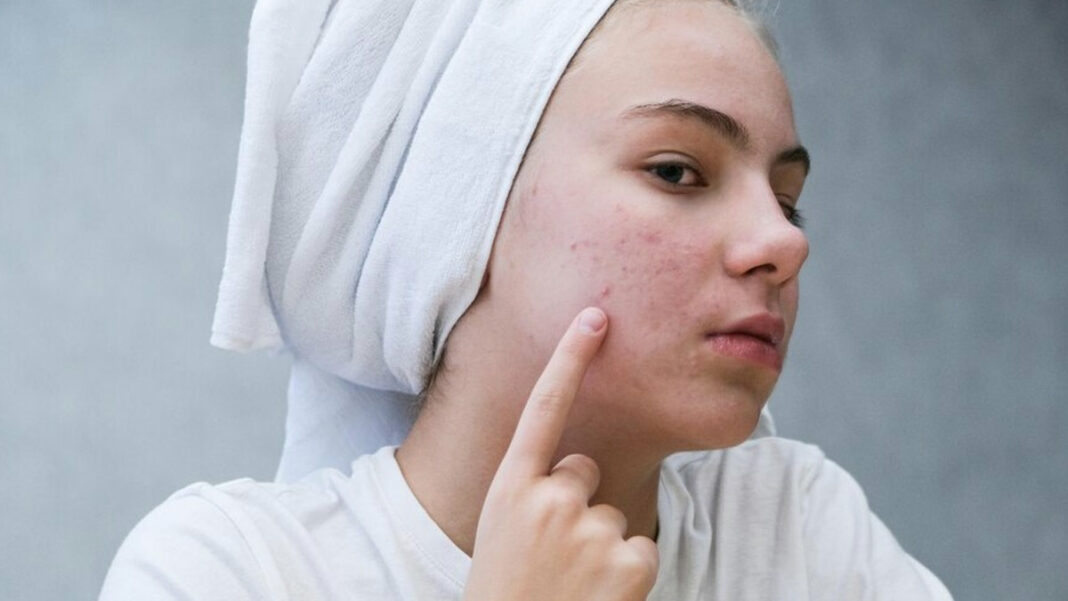Tretinoin is usually available in a tube form and used as a medical ointment for skin-related issues. Tretinoin, often hailed as a skincare superhero, is a topical medication with remarkable benefits for acne-prone skin. Here’s a breakdown of what tretinoin is and how it works to protect your skin against acne, giving you the confidence of clear and radiant skin. What Is Tretinoin? According to an overview by the University of Miami and Jackson Memorial Hospital, tretinoin, also known as retinoic acid or Retin-A, belongs to a class of medications called retinoids. It is derived from vitamin A and is renowned for its ability to promote skin renewal and improve various skin concerns, including acne, fine lines, and uneven skin tone. Skin Benefits Of Tretinoin Tretinoin works by accelerating the turnover of skin cells. As per the National Institutes of Health, it enhances cell regeneration, shedding old skin cells more rapidly and promoting the growth of new, healthy cells. This process helps unclog pores, prevent the formation of blackheads and whiteheads, and reduce acne breakouts. Unclogs Pores and Prevents Acne One of the primary benefits of tretinoin is its ability to unclog pores. By promoting exfoliation and preventing the accumulation of dead skin cells, tretinoin reduces the likelihood of pores becoming blocked with debris, oil, and bacteria. This unclogging action significantly decreases the occurrence of acne lesions. Reduces Inflammation Acne is often accompanied by inflammation, leading to redness, swelling, and discomfort. Tretinoin has anti-inflammatory properties that help calm the skin, reduce redness, and alleviate the inflammatory response associated with acne. It soothes irritated skin and promotes a clearer, smoother complexion. Also Read: Getting Rid of Vaginal Acne: Dermatologist Explains Causes and Treatment of Genital Pimples Stimulates Collagen Production In addition to its anti-acne effects, tretinoin stimulates collagen production in the skin. Collagen is a protein that maintains skin elasticity and firmness. By boosting collagen synthesis, tretinoin helps improve skin texture, minimise the appearance of fine lines and wrinkles, and promote a youthful appearance. Improves Overall Skin Tone Regular use of tretinoin can lead to a more even skin tone and texture. It helps fade hyperpigmentation, such as acne scars and dark spots, by promoting cell turnover and facilitating the shedding of pigmented skin cells. This results in a brighter, more radiant complexion over time. Tips for Using Tretinoin If you are interested in using tretinoin, follow these steps: Start with a low concentration and gradually increase as your skin tolerates it. Apply tretinoin at night to clean, and dry skin, and use a moisturiser to prevent dryness and irritation. Use sunscreen during the day, as tretinoin can increase skin sensitivity to sunlight. Tretinoin is a potent ally in the fight against acne and skin ageing. Its ability to unclog pores, reduce inflammation, stimulate collagen production, and improve overall skin tone makes it a valuable addition to any skincare routine. Consult with a dermatologist to determine the appropriate tretinoin regimen for your skin type and concerns, and embark on a journey to clearer, healthier skin with the power of tretinoin.Read NextGetting Rid of Vaginal Acne: Dermatologist Explains Causes and Treatment of Genital PimplesDisclaimer All possible measures have been taken to ensure accuracy, reliability, timeliness and authenticity of the information; however Onlymyhealth.com does not take any liability for the same. Using any information provided by the website is solely at the viewers’ discretion. In case of any medical exigencies/ persistent health issues, we advise you to seek a qualified medical practitioner before putting to use any advice/tips given by our team or any third party in form of answers/comments on the above mentioned website.
